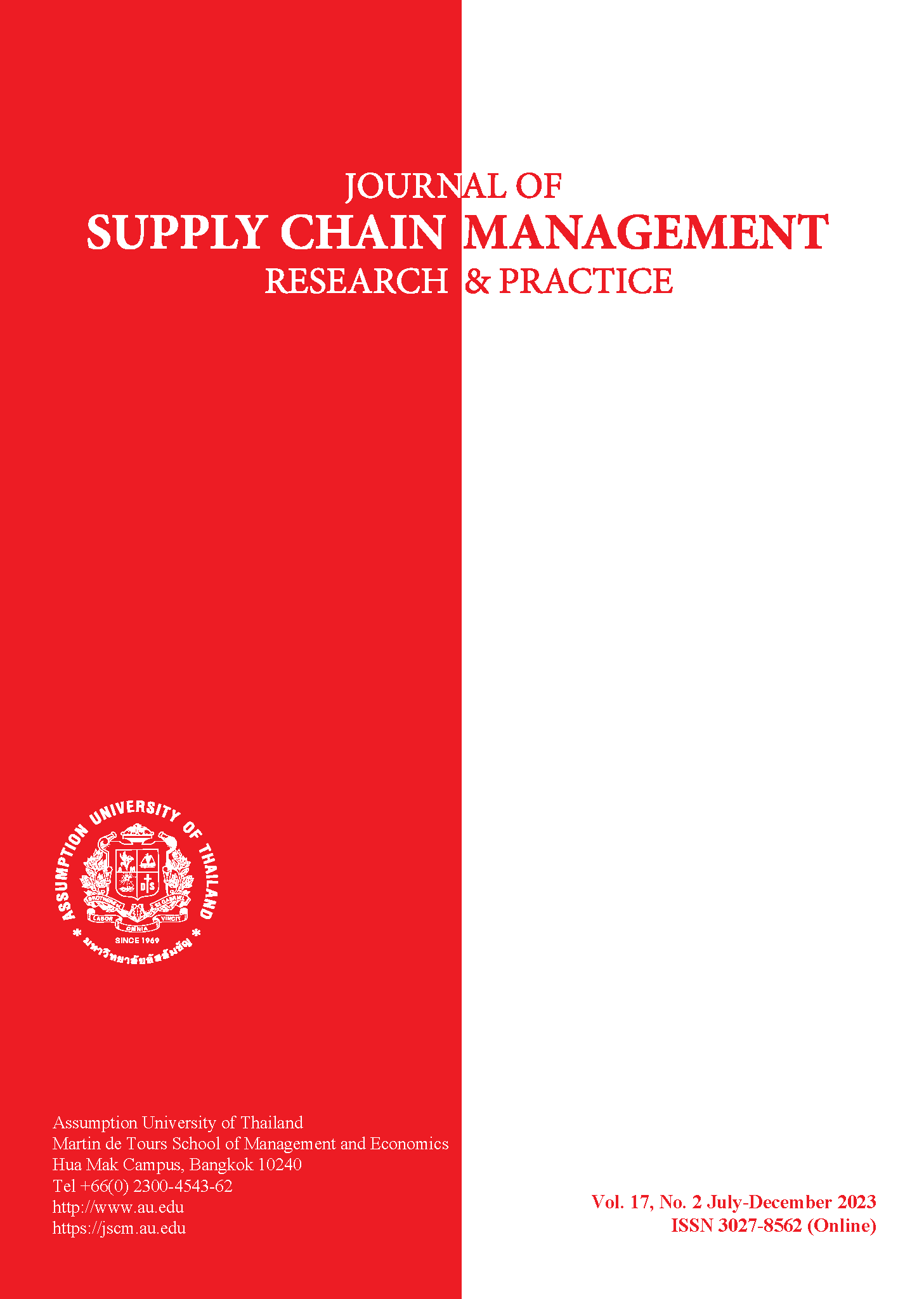BATTERY TRANSPORT OPTIMIZATION BY A VEHICLE MANUFACTURER IN THAILAND
Abstract
This study is about battery transportation by a Vehicle Manufacturer that was found to have inefficient space utilization in the truck container. This problem negatively affected the company’s profit and opportunity. Therefore, the use of GRASP (Greedy Randomized Adaptive Search Procedure) is proposed to minimize the problem substantially. In this research, a Vehicle Manufacturer focuses on its battery exports, which are transported by commercial vehicles. Data was collected by interviewing personnel, observing actual operations, and analyzing historical data. The result showed that a container truck utilized only 68% of its space. This impacted two areas: a high number of transportation trips, and high transportation cost. The conceptual framework of the research is to find the causes of the battery transportation problem as well as to implement GRASP methodology as a solution. GRASP methodology is a heuristics approach to allocating the right space. This methodology is widely applied in vessel container businesses, and can be useful in related fields such as truck containers. The objective of this research is to build a significant tool to enhance space utilization for loading batteries. The result indicates that the proposed solution can be accomplished and solve space utilization. According to this research, the company should implement a tower rack to stack batteries on pallets, and change the truck size from six wheels to ten wheels. These changes will provide cost saving, customer satisfaction, and collaboration, which increases the focus firm’s competitiveness in the industry.


